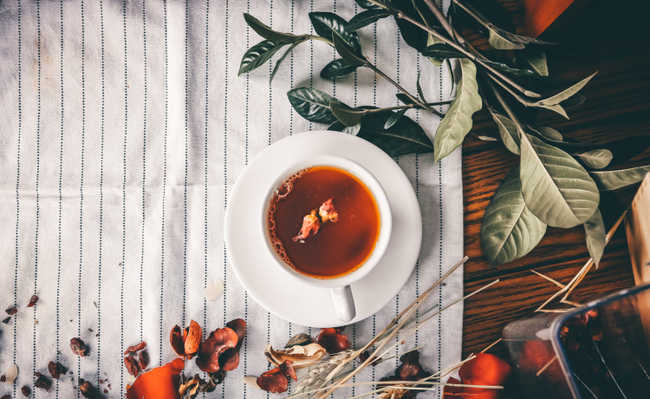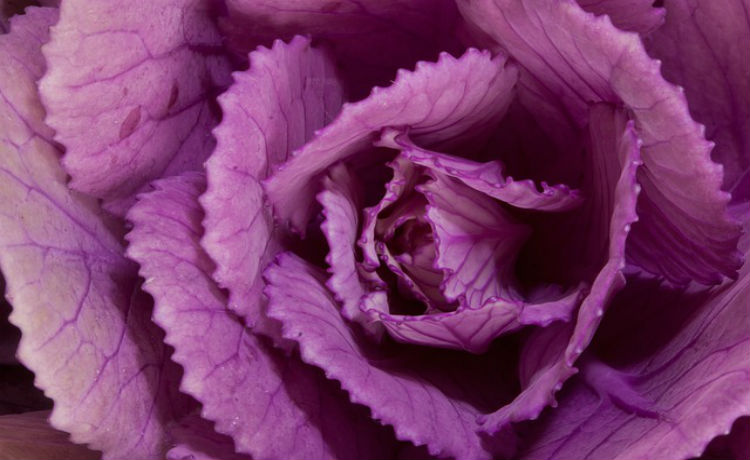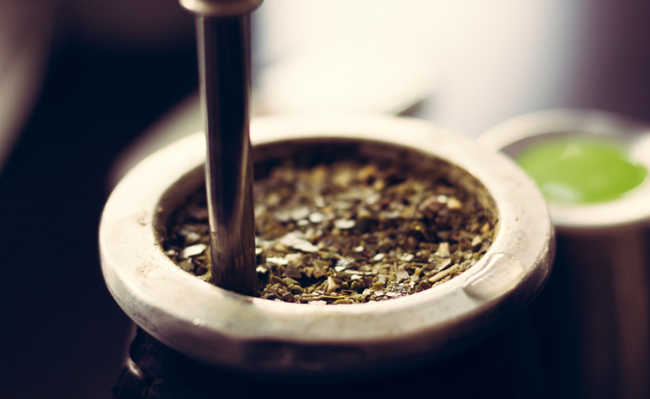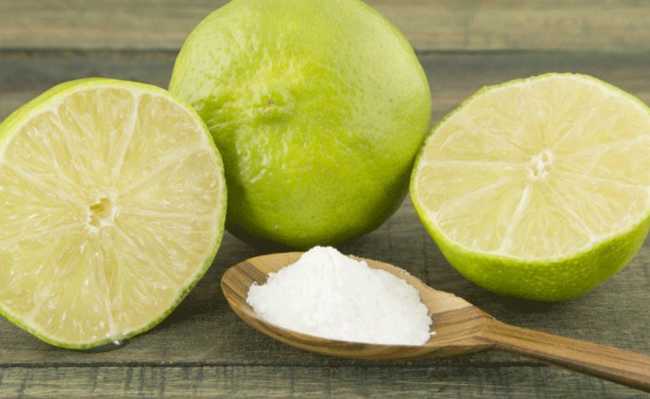15 Natural Remedy Options for Anxiety
Natural Remedy Options for Anxiety Range from Habits to Herbal Supplements

Resized image of Ablimit Ablet, is available on Unsplash
Anxiety is a healthy feeling that serves to anticipate danger and help us survive. However, when it does more harm than good, becoming a daily struggle, it is time to seek psychological or psychiatric advice. In addition to professional support, it is also possible to adopt some habits and natural remedy tips for anxiety. Check out:
1. stay active
Exercising regularly is good for physical and mental health and is a habit that works as a natural remedy for anxiety. Exercise works similarly to medication to relieve some people's anxiety. And it's not just a short-term feeling: the feeling of relief from anxiety lingers for hours after exercise.
- Twenty exercises to do at home or alone
- HIIT training: seven minutes of exercises to do at home
2. Avoid alcohol
Alcohol is a natural anxiolytic and sedative. Drinking a glass of wine or a finger of whiskey when your nerves are on edge can help to calm you down. However, after a while, alcohol can worsen anxiety and lead to addiction.
3. Meditate
The main teaching of meditation is control over the mind and chaotic thoughts, which brings a feeling of calm and fullness. Meditation is widely recognized for relieving stress and anxiety. Research suggests that 30 minutes of daily meditation can act as a natural remedy for anxiety and still act as an antidepressant.
- Children's Meditation: Five Techniques for Children
4. Maintain a healthy diet
Low blood sugar levels, dehydration, or chemicals in processed foods, such as artificial flavors, dyes, and preservatives, can cause mood swings in some people. A diet high in sugar can also affect temperament. If your anxiety gets worse after eating, check your eating habits. Stay hydrated, eliminate processed foods and maintain a healthy diet rich in complex carbohydrates, fruits, vegetables and lean proteins.
- 11 Tips for a Successful Sugar Free Diet
5. Take a deep breath
Shallow, rapid breathing is typical of when we are anxious and can speed up the heart rate, cause dizziness and even a panic attack. Practicing slow, deep breathing exercises can help restore normal breathing patterns and act as a natural remedy for anxiety.
- meet the pranayama, yoga breathing technique
6. Try aromatherapy
Aromatherapy is a technique that uses essential oils to promote health and well-being. Essential oils can be inhaled directly or added to a hot bath or diffuser. Studies show that some essential oils used in aromatherapy help:
- To relax;
- To sleep;
- Improve mood;
- Reduce heart rate and blood pressure.
- What are essential oils?
Some examples of essential oils used to relieve anxiety are:
- Bergamot;
- Lavender;
- Sage clarifies;
- Grapefruit;
- Ylang ylang.
- Discover nine essential oils and their benefits
- What is the essential oil of sage clarifies for
7. Drink chamomile tea
Chamomile tea is a common home remedy to calm the nerves and promote sleep. A 2009 study showed that chamomile can also be a powerful ally against generalized anxiety disorder. The study found that people who took German chamomile capsules (220 milligrams up to five times a day) had a greater reduction in scores for tests measuring anxiety symptoms than those who took a placebo.
- Chamomile tea: what is it for?
If you don't like drinking chamomile tea, test it with supplements. The average recommended dose of the supplement ranges from 350 to 500 mg, which can be divided into two tablets or taken in a single daily dose. In the case of tea, the ideal is to have a cup a day.
8. Use vitamin supplements
If you already have a healthy diet, this option may not work as a remedy for your anxiety. But if you know that your diet is low in essential nutrients (especially those who don't consume raw fruits and vegetables), dietary supplements may be the key to alleviating your anxiety symptoms.
Vitamin A
People with anxiety are deficient in vitamin A. Vitamin A is an antioxidant that helps control anxiety symptoms. The average recommended dose of the supplement is around 10,000 international units (IU), taken as one tablet once a day.
B complex
B-complex supplements contain all the B-complex vitamins needed by the body, which are vital to maintaining a healthy nervous system. These supplements can also help improve anxiety and depression symptoms.
The dosage varies, on average, from 300 milligrams (mg) to 500 mg per day.
Vitamin C
Oxidative damage can increase anxiety. Vitamin C, on the other hand, being an antioxidant, prevents this damage and, consequently, anxiety.
The average recommended dose of the supplement ranges from 500 to 1000 mg. This can be split into two pills or taken as a daily pill.
D vitamin
Vitamin D is an important nutrient that helps the body absorb other vitamins. Despite being produced by the body itself from exposure to sunlight, it is possible to have a deficiency in vitamin D, which can lead to other vitamin deficiencies, aggravating anxiety. The average dose of the supplement can range from 1,000 to 2,000 IU. The dose can be divided into several tablets or taken as a single tablet once a day.
- Vitamin D: what is it for and benefits
Vitamin E
Vitamin E is another antioxidant. The body uses this nutrient quickly in times of stress and anxiety. Vitamin E supplementation can help restore balance and reduce anxiety symptoms. The average recommended dose of the supplement is around 400 IU, which should be taken as a single tablet once a day.
9. Try the ashwagandha supplement
THE ashwagandha (Withania somnifera) is a plant used in Ayurveda. Some research suggests that it may be as effective as conventional medications for treating anxiety.
The average recommended dose of the supplement is around 900 mg, which can be taken in two 450 mg capsules or one 900 mg capsule a day.
10. Take magnesium supplement
Magnesium is an essential mineral for the body and its deficiency can cause anxiety symptoms. The average recommended dose of magnesium supplement ranges from 100 to 500 mg.
- Magnesium: what is it for?
11. Don't be late
As we run, in addition to getting sweaty, our heart beats like a tambourine and our breathing quickens. To avoid this situation, it is better to leave early. If you're already late though, don't rush. Take a deep breath and try to stay calm, what's a few extra minutes if you're already late? Better to prioritize peace of mind. The ideal is to arrive ten minutes earlier, so you have time to adapt to the place and, if the environment permits, even order a drink. More than ten minutes in advance can bring up anxious thoughts during the wait.
12. Choose what to wear in advance
There's nothing worse than trying to find an outfit at the last minute. Choose something comfortable and feel good in advance. Being well dressed helps to increase self-confidence.
13. Try the bacopa supplement
A 2013 study found that bacopa plant extract can lower cortisol levels. Cortisol is known as the stress hormone and can aggravate anxiety symptoms. The average recommended dose of the supplement is around 500 mg per day.
14. Distract yourself on the way
The journey to your destination is often the worst part. Use distraction techniques to keep your anxious mind from going over everything that could go wrong. Books, apps and mobile games are very good for this.
15. Use a heavy blanket
For many people who have disorders such as anxiety, insomnia or autism, heavy blankets can work as a natural remedy. They can also be used to complement conventional therapies.
One study has shown that putting pressure on the body during sleep is an effective way to synchronize cortisol secretion with the natural 24-hour circadian rhythm, especially in women. The pressure helped to reduce the participants' production of cortisol during sleep, which improved sleep and relieved stress, insomnia and pain.
Another study found that 13.6 kg blankets are a safe and effective way to reduce anxiety in adults. Of the 32 adults who participated in the study, 63% reported lower levels of anxiety.
Adapted from Healthline and Pubmed










